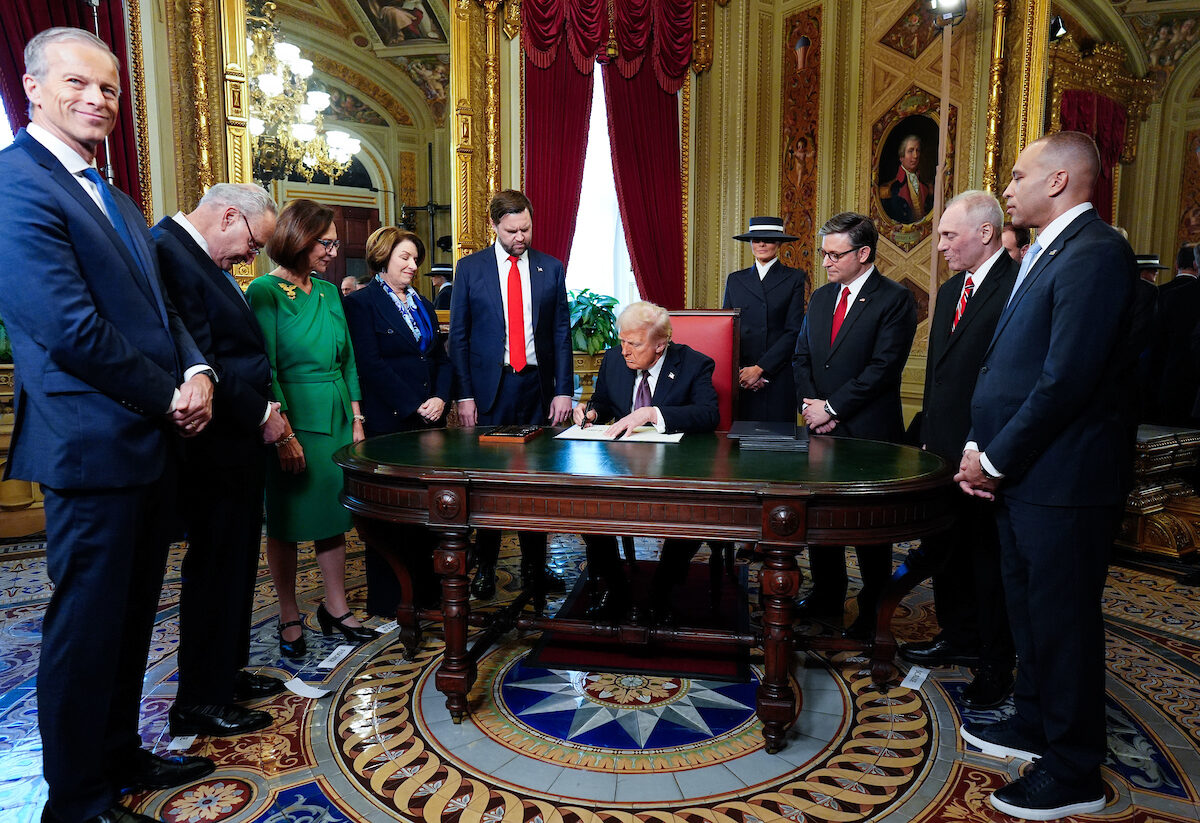
Opinion: Congress has itself to blame for current constitutional crisis
One way to understand the unfolding constitutional crisis in Washington is as the inevitable result of 30 years of congressional dysfunction.
For starters, Congress’s failure to address and resolve the major challenges facing the country – – immigration, runaway budget and trade deficits, climate, rising inequality of income, opportunity and health and education outcomes, regulating the Internet—have led frustrated voters to turn to a strongman who promised to do whatever it takes to cut through the bureaucracy, the special interests and the political gridlock to get things done.
Congress’s failure to resolve issues also invited or—or forced—judges and presidents to act to fill that vacuum, which over time has reduced the power and importance of the legislative branch. It has also created the widespread expectation—among the other branches, among the voters and even among the Members themselves—that Congress cannot and will not do its job. These low expectations are now so hard-wired into everyone’s political calculus that they have created a self-fulfilling downward spiral.
Individually and collectively, members of the House and Senate have lost any sense of responsibility for governing the country. What little has been accomplished in recent decades has been negotiated behind closed doors by presidents and party leaders as members were socialized into the belief that their job was vote the party line, mouth the party talking points and raise money for the party. In return, most were guaranteed re-election through some combination of gerrymandering, campaign funding and shielding them from having to take “tough” votes. What they have learned is that there is no political penalty for failure.
So now, when an autocratic President who sends up patently unqualified nominees to be confirmed, who asserts the power to ignore laws and appropriations passed by Congress, who shuts down agencies created by Congress, who fires officials confirmed by Congress, members of the President’s party are so unaccustomed to making independent decisions or taking responsibility for governing and so convinced that they must maintain party unity to win the next election, that they going along. For the majority of Members who know better, their lack of seriousness of purpose and self-respect is appalling. Their ability to rationalize the irrational, to themselves as well as the public, is stunning.
At this moment it may appear that this is mostly a Republican problem, that Democrats do not fall into this trap. It is hard to quarrel with the idea that Republicans are more responsible for the tribalism, the polarization, the gridlock or that it started on their watch. But I’d ask you to remember that Democrats in Congress did not protest when their president arrogated unto himself the power to forgive tens of billions of dollars in student debt. Democrats did not hold oversight hearings on the fiasco in Afghanistan or the crisis at the border. They went along with virtually no dissent when a president elected because he was not Bernie Sanders and Elizabeth Warren decided he would govern as if he were, using the same budget process as Trump to push through a massive tax and spending bill with no input or votes from the other party. And Democrats remained silent in the face of mounting evidence that their president was physically and mentally not up to the job. If anything, Democrats in Congress have been more fixated on unity and less willing to challenge party leaders. This is not just a Republican problem. It is a congressional problem.
One of the things you hear is that Members cannot be expected to buck a president or party orthodoxy because of the certainty of a successful primary challenge. Another is that Congress’s dysfunction is unavoidable because it reflects that the country has sorted itself into two roughly equal warring tribes. These may be plausible explanations but they are lousy excuses, a moral and political cop out. Leaders are meant to lead, not cower before voters or the social media mob. They are supposed to have the wisdom and courage to figure out what is right and achievable and the political chops to explain and defend it to their constituents. Those are both the challenges and satisfactions of the job. And if they can’t or don’t want to do the job, then you have to wonder why they are so desperate to come back for yet another term of contributing little and accomplishing even less?
Members of Congress are not helpless cogs in a political machine they cannot control. Individually, collectively, they have agency, responsibility and power. By their actions, they can either stoke division and distrust or, by modeling different behavior, move things in a positive direction.
Members have a choice. They can spend their days dialing for dollars, tweeting out party talking points, participate in committee hearings that are nothing more than political kabuki and plotting at party caucus meetings on how to stick it to the other side while avoiding addressing issues that might jeopardize party unity. Or they can spend their time working with serious colleagues of both parties to create working majorities behind common sense and politically viable solutions to the problems Americans care most about.
On most days, most Members of Congress make the wrong choice, creating a political vacuum that an egomaniacal charlatan is now only too willing to fill. This constitutional crisis is on them—and on us for not holding them to account.
Steven Pearlstein is a Senior Fellow at Penn Washington. He is also the Robinson Professor of Public Affairs at George Mason University and a former Pulitzer Prize-winning columnist for the Washington Post. The views expressed here are his own.